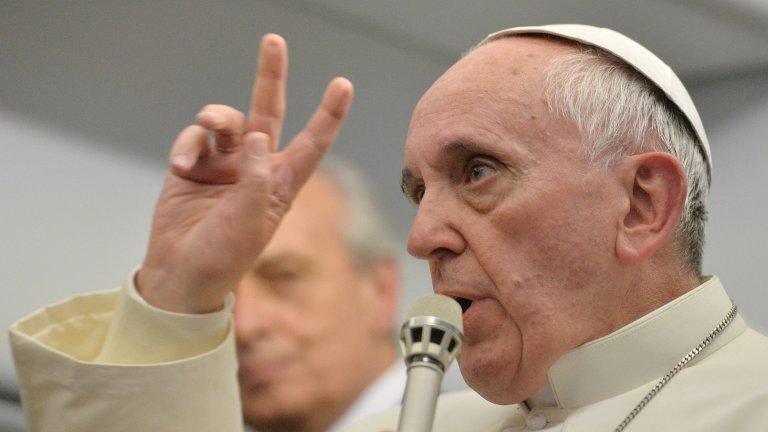Profile: Pope Francis
- Published
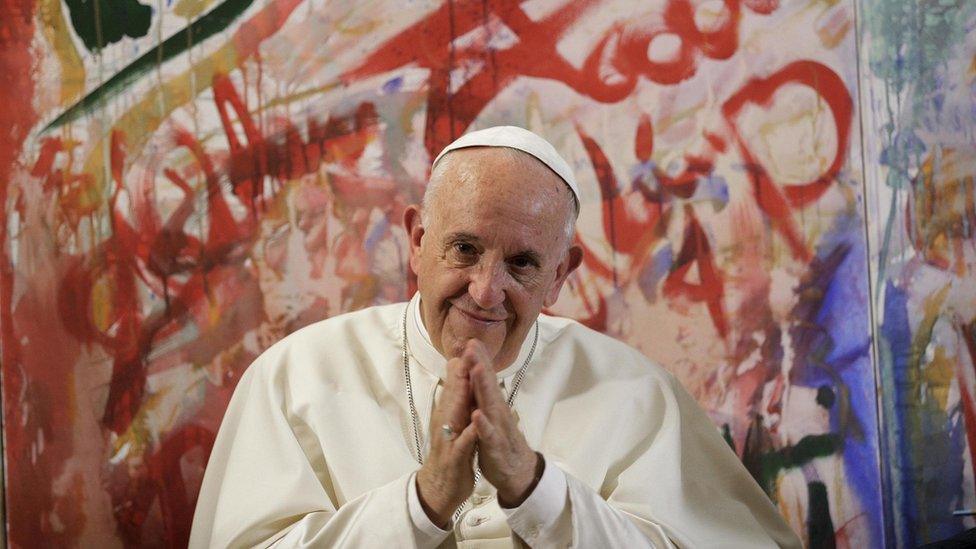
Pope Francis has been an outspoken reformer - but his style has also fomented opposition, within the Vatican and beyond
Cardinal Jorge Mario Bergoglio was a relative outsider when he was chosen to succeed Benedict XVI in 2013.
Pope Francis, as he became, is the first Latin American and the first Jesuit to lead the Roman Catholic Church.
His election as the 266th pope surprised analysts who may have been expecting a younger man than the 76 year old.
At the time of his election he drew broad support from both Church conservatives and reformers, being seen as orthodox on sexual matters but liberal on social ones.
His supporters liked his "common touch" and his zealous determination to reform the Curia (Vatican bureaucracy), root out corruption in the Vatican bank and deal with the horrific legacy of child sex abuse within the Church.
Four years into his papacy, polls suggest the Pope enjoys high popularity ratings, among Catholics and other faiths. He is followed by more than 15 million people on Twitter.
But his willingness to take on issues head-on has also created a growing number of opponents, both within the Vatican and outside.
Social critic
On the morning after his election, the new Pope slipped out of Vatican City in a motorcade of unmarked vehicles to pray in a Roman Basilica, according to BBC Rome correspondent David Willey.
On the way back to the Vatican, he insisted on settling his bill at a hotel for clergy in the centre of the Italian capital, immediately stamping his style on the papacy.
He abandoned the roomy penthouse apartment used by popes for the past century in favour of a tiny suite in the Vatican guesthouse, and turned his back upon the palatial papal summer residence at Castel Gandolfo.
He has gone on to call into question free-market economics, said the Church should apologise to gay people rather than judge them, and compared European migrant detention centres with concentration camps, among other things.
But observers say it is inaccurate to suggest the Pope is a liberal out and out, external. "Francis is also clearly 'conservative'", wrote John Allen Jr, editor of the Roman Catholic-oriented news website Crux, in 2016. He added that he had not yet "changed a single comma in the catechism, the official compendium of church teaching. He's said no to women priests, no to gay marriage, defined abortion as the 'most horrific' of crimes, defended the heart of the ban on birth control, and on every other contested issue declared himself a loyal 'son of the church'."
Nonetheless, his sharp bringing-to-heel of the Curia and his willingness to soften the Church's stance on such issues as communion after remarriage has cemented an increasingly active resistance to his authority.
He has also not flinched at replacing cardinals with whom he doesn't see eye to eye.
Humble lifestyle
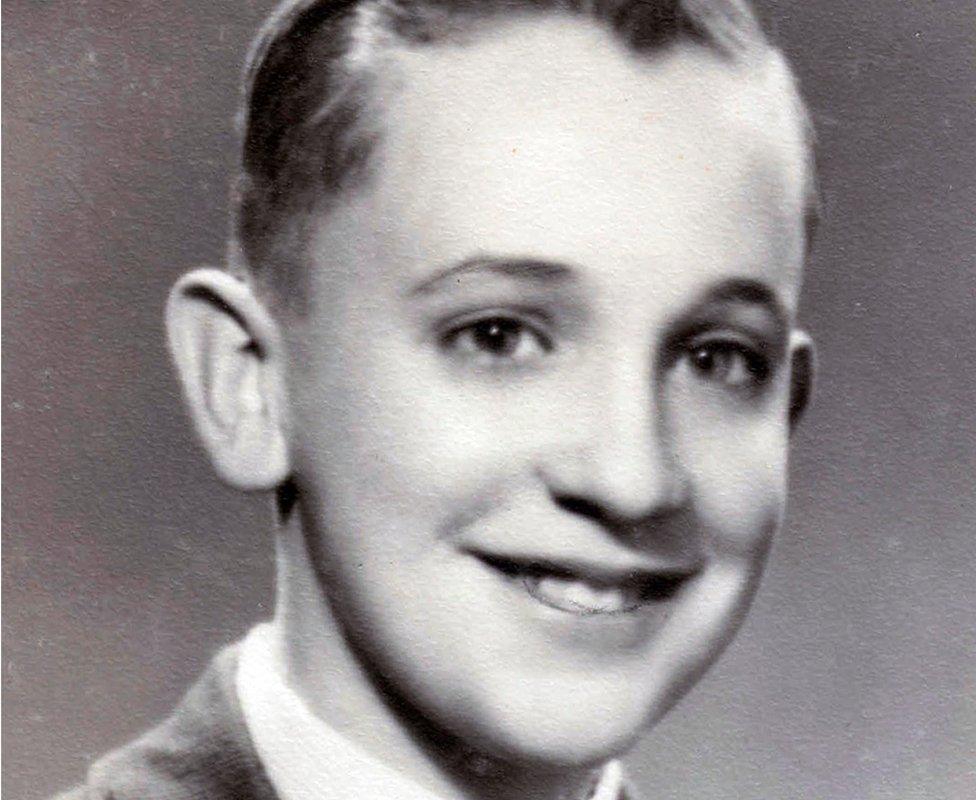
Jorge Mario Bergoglio was born to an Italian immigrant railway worker
Jorge Mario Bergoglio was born on 17 December 1936 in Buenos Aires, of Italian descent. According to his official Vatican biography, he was ordained as a Jesuit in 1969, and went on to study in Argentina and Germany.
As a young man, he had a lung removed because of an infection.

Who are the Jesuits?
The Society of Jesus is a male order of the Catholic Church, with 19,000 members worldwide
It was established in 16th Century Europe as a missionary order, and members swear vows of poverty, chastity and obedience
The order became so powerful that it was suppressed at the end of the 18th Century but later restored
Jesuits have a reputation as expert communicators

He became a bishop in 1992 and Archbishop of Buenos Aires in 1998. At the 2005 conclave, he was seen as a contender for the papacy.
As Cardinal Bergoglio, his sermons always had an impact in Argentina and he often stressed social inclusion, indirectly criticising governments that did not pay attention to those on the margins of society.
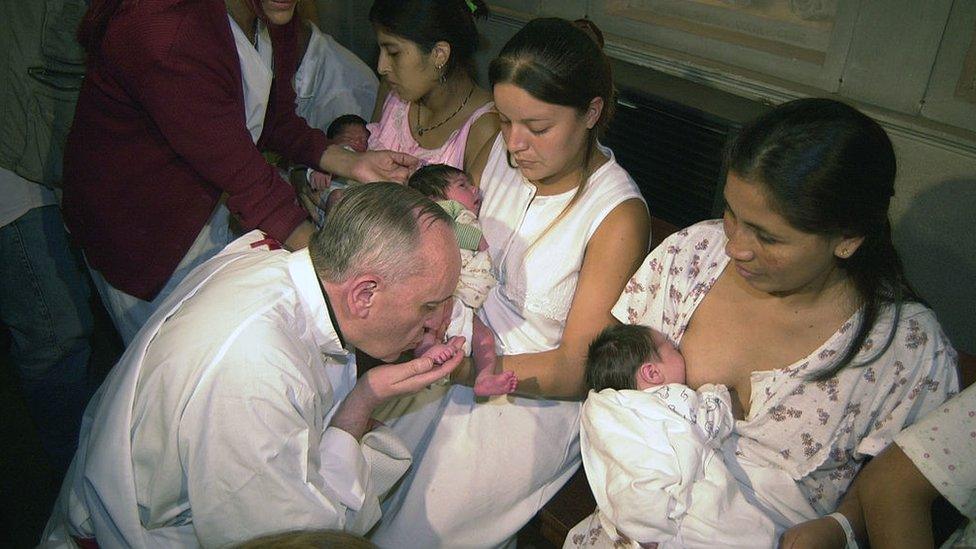
As archbishop of Buenos Aires (here in 2005), Cardinal Bergoglio was known for his humility and common touch
Francesca Ambrogetti, who co-authored a biography of him, told Reuters news agency that part of his public appeal lay in his "sober and austere" lifestyle.
For the Church establishment, it was a novelty to have a Jesuit in charge - members are supposed to avoid ecclesiastical honours and serve the Pope himself.

Pope Francis in brief
Born Jorge Mario Bergoglio on 17 December 1936 in Buenos Aires
Ordained as a Jesuit in 1969
Studied in Argentina, Chile and Germany
Became Cardinal of Buenos Aires in 1998
Seen as orthodox on sexual matters but strong on social justice
His papacy marks a return to modernising Church forces from the traditionalism of his predecessors

His views were put to the test in Argentina, the first Latin American country to legalise same-sex marriage and whose president at the time, Cristina Fernández de Kirchner, promoted free contraception and artificial insemination.
The former cardinal appears to be a strong Argentine patriot, telling Argentine veterans of the Falklands War at a 2016 Mass: "We come to pray for all who have fallen, sons of the homeland who went out to defend their mother, the homeland, and to reclaim what is theirs."
Junta years
One subject of controversy is his role under the Argentine military dictatorship of 1976-1983, when he led the country's Jesuits.
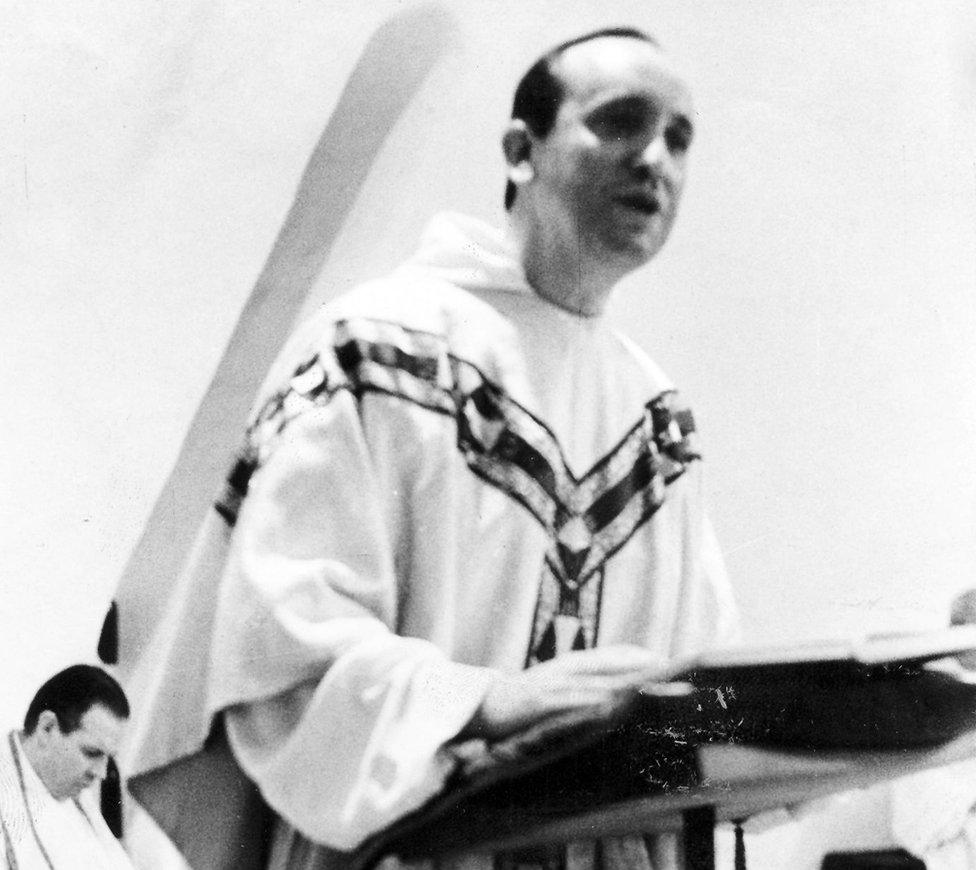
The Vatican has denied claims that Jorge Mario Bergoglio colluded with the military junta in Argentina in the 1970s
He was accused of effectively delivering two fellow priests into the hands of the military authorities in 1976 by declining to publicly endorse their social work in the slums of Buenos Aires, which infuriated the junta at the time, the BBC's Vladimir Hernández reported.
Another accusation levelled against him from the "Dirty War" era is that he failed to follow up a request to help find the baby of a woman kidnapped when five months' pregnant and killed in 1977. It is believed the baby was illegally adopted.
The Vatican strenuously denies Pope Francis was guilty of any wrongdoing under the Junta.
It emerged that in 2011 he took initial steps towards beatifying Argentine priests murdered under military rule. In a separate case, he also put forward for sainthood five Catholic churchmen who were killed at the St Patrick church in Buenos Aires, also in 1976.
And at the Pope's request, the Vatican opened up its files on the Argentine dictatorship, to victims and their relatives.
Adolfo Pérez Esquivel, a Nobel Peace Prize-winning human rights activist, who was jailed and tortured by the regime, told BBC News: "There were some bishops who were in collusion with the military, but Bergoglio is not one of them."
Now that Pope Francis is in his 80s, and with his predecessor having established that popes do not have to remain in their role until death, the question arises whether he might himself decide to resign.
He has said "I would do the same!", if his powers wane.
Related topics
- Published10 March 2017
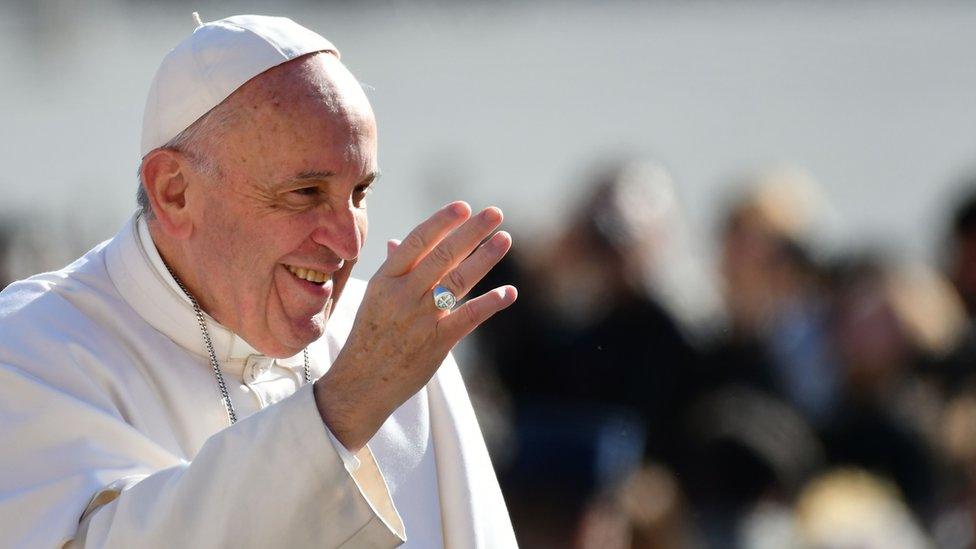
- Published18 February 2017
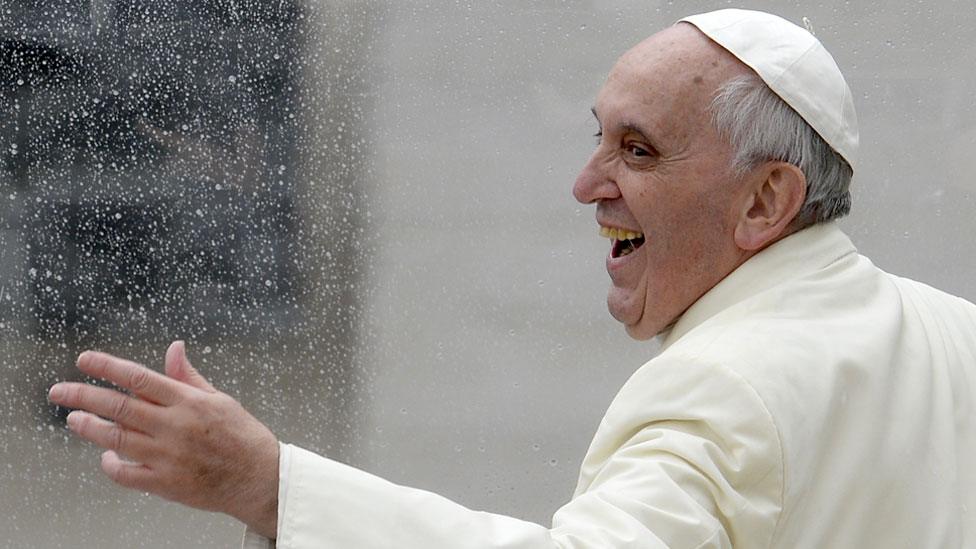
- Published21 November 2016
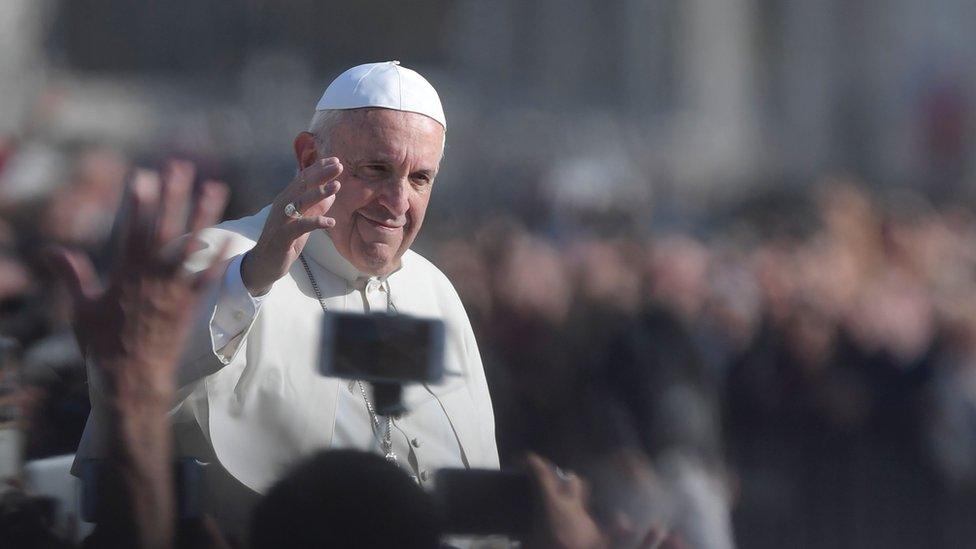
- Published25 December 2016
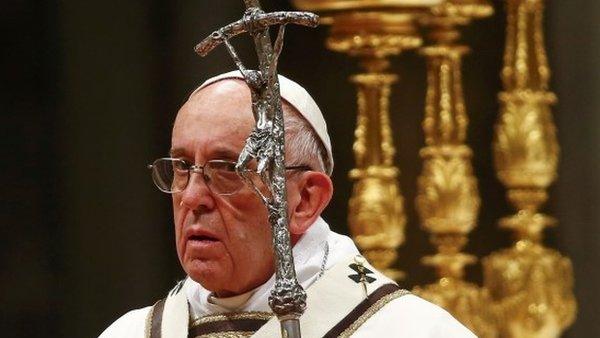
- Published3 October 2014
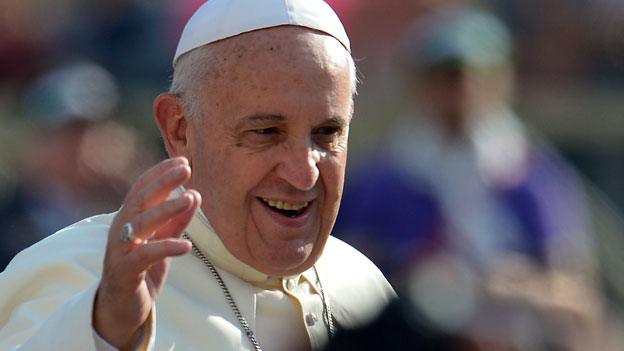
- Published29 July 2013
